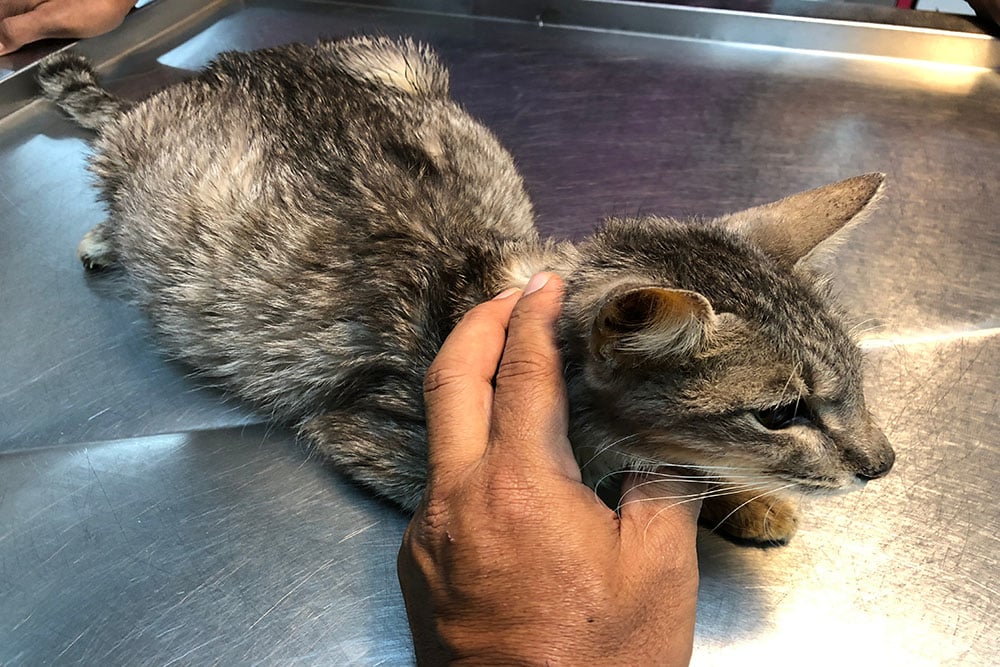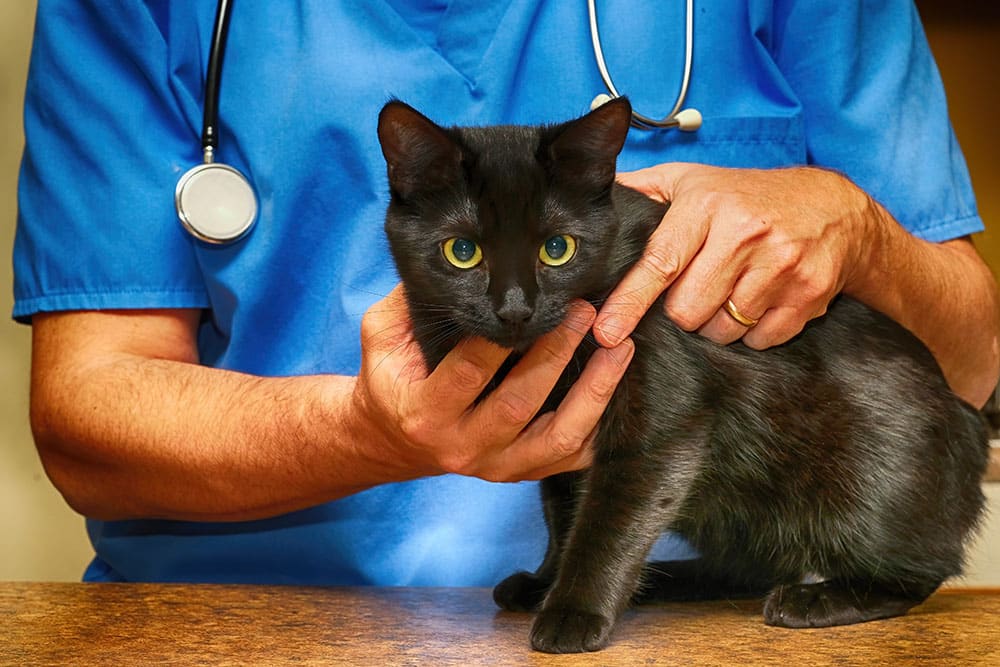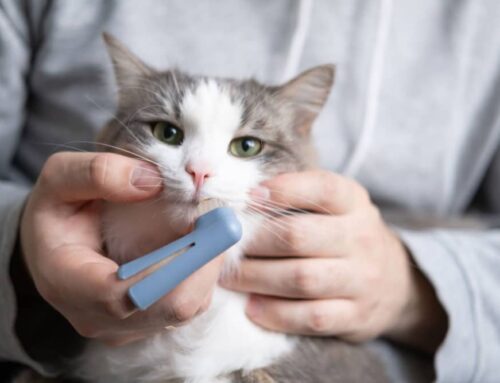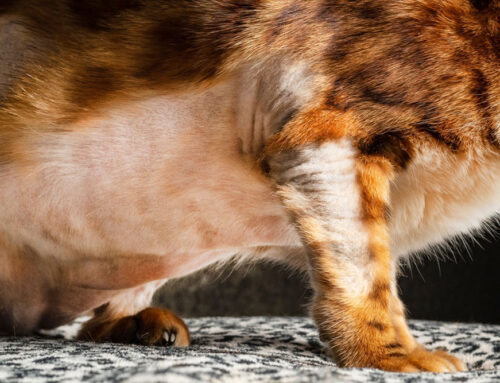What Cat Owners Should Know About FIP: Symptoms, Diagnosis, and Breakthrough Treatments
Feline Infectious Peritonitis, better known as FIP, is one of the most misunderstood and emotionally charged diagnoses in feline medicine. At Just Cats Clinic in Reston, Virginia, we’ve helped many families navigate this difficult condition, and we believe that knowledge—not panic—is the best first step.
In this guide, we’ll break down what FIP is, how it develops, how it’s diagnosed, and—most importantly—how new treatments are giving cats a real shot at survival.
What Is Feline Infectious Peritonitis (FIP)?
FIP is a progressive, often fatal disease caused by a mutation of the feline coronavirus (FCoV). To be clear, this virus is not related to COVID-19, and it is not transmissible to humans. Most cats exposed to feline coronavirus show mild digestive upset or no symptoms at all. But in a small percentage of cases, the virus mutates inside the cat’s body and triggers an abnormal immune response, resulting in FIP.
According to the Cornell Feline Health Center, the disease most often affects cats under two years old or those with weakened immune systems.
How Do Cats Get FIP?
FIP is not directly contagious in its mutated form. Instead, it begins as a common enteric (intestinal) coronavirus. This virus spreads easily through shared litter boxes, grooming, or contaminated surfaces. In most cats, the virus stays in the gut. But in some, the virus mutates, enters immune cells, and travels throughout the body, causing inflammation in organs like the abdomen, kidneys, brain, and eyes.
There is no definitive way to predict which cats will develop FIP, but risk factors include:
- Living in multi-cat environments (especially shelters or catteries)
- Young age (especially under 2 years)
- Certain breeds may be more genetically predisposed
- Concurrent infections (FeLV, FIV)
For more on FIP risk reduction, UC Davis offers useful insights on preventing FIP in cats.
Forms of FIP: Wet vs. Dry
FIP presents in two main forms:
Wet (Effusive) FIP
The more classic presentation, wet FIP involves the accumulation of fluid in the abdomen or chest. You may notice a swollen belly or labored breathing, depending on where the fluid builds up.
Dry (Non-effusive) FIP
This form doesn’t involve fluid buildup but causes inflammation in organs like the liver, kidneys, brain, or eyes. Symptoms can include neurological issues, weight loss, eye inflammation, and behavior changes. Dry FIP is harder to diagnose because the signs are more subtle and varied.
Recognizing the Signs of FIP
FIP can be frustrating to diagnose because its symptoms are non-specific, especially in the early stages. If your cat seems “off” and has persistent fever, lethargy, or weight loss that doesn’t resolve with basic treatment, FIP should be on the radar.
Common symptoms include:
- Persistent fever unresponsive to antibiotics
- Weight loss or muscle wasting
- Lethargy
- Swollen abdomen (in wet FIP)
- Eye changes (in dry FIP)
- Neurological signs (such as incoordination or seizures)
- Loss of appetite
If your cat is showing any of these signs, urgent veterinary care is warranted. The sooner we investigate, the better the chances of identifying a treatable condition—or beginning supportive care promptly.
Diagnosing FIP: A Process of Exclusion
There is no single test that definitively confirms FIP. Diagnosis is based on a combination of history, clinical signs, lab work, imaging, and fluid analysis. We may run bloodwork to look for anemia, elevated protein levels, or inflammation. In cases of wet FIP, fluid from the abdomen or chest is sampled and tested.
At Just Cats Clinic, we use advanced diagnostic tools in a calm, cat-focused environment. As a certified Cat Friendly Practice and AAHA-accredited hospital, our team is trained to handle complex feline cases with precision and compassion.
The Breakthrough: New Hope for FIP Treatment
Just a few years ago, an FIP diagnosis was considered a death sentence. Today, thanks to the antiviral drug GS-441524, survival is possible.
GS-441524 is a nucleoside analog that interferes with the virus’s ability to replicate. Although not yet FDA-approved for veterinary use, the drug is now legally available in the U.S. through veterinary compounding pharmacies. Cornell University provides an excellent breakdown of the drug and its legal status.
Treatment generally involves:
- Daily oral or injectable administration of GS-441524
- Monitoring bloodwork and clinical signs
- A full treatment course of at least 12 weeks
Success rates are improving, especially when FIP is diagnosed early. Clinical trials show survival rates of over 80% in some cases.
What About the FIP Vaccine?
A vaccine for feline coronavirus does exist, but its effectiveness is limited. It’s administered intranasally and is generally not recommended as part of a routine vaccination schedule. The Cornell Feline Health Center and the AAHA both provide detailed guidance for cat owners weighing the pros and cons of the FIP vaccine.
Supporting Your Cat at Just Cats Clinic
A diagnosis of FIP can be overwhelming, but you don’t have to face it alone. Whether you’re pursuing aggressive treatment or simply need help making the next best decision for your cat, our team is here to support you.
At Just Cats Clinic, we specialize in feline care—period. That means:
- No barking dogs in the background
- Cat-savvy clinicians who understand feline behavior
- Gentle handling and low-stress exams
- Deep expertise in feline-specific diseases
When you’re working through a complex condition like FIP, experience and environment make a difference.

Frequently Asked Questions
Is FIP contagious to other cats?
The mutated form of the virus that causes FIP is not contagious. However, the original feline coronavirus is contagious, especially in group-living situations. Good litter box hygiene and reduced overcrowding help reduce spread.
Can my cat recover from FIP?
Yes, recovery is possible, particularly with early diagnosis and access to GS-441524. Cats that complete a full 12-week treatment protocol and remain stable for 12 weeks afterward are considered cured in many cases.
Should I isolate my FIP-positive cat?
If your household includes other cats, isolating the affected cat may help reduce the spread of the original coronavirus. However, once FIP develops, that specific form is not contagious.
There’s Hope—and We’re Here to Help
FIP is no longer the automatic farewell it once was. With early detection, proper diagnostics, and access to effective treatment, cats with FIP have a chance at recovery. And even when a cure isn’t possible, compassionate care can still offer meaningful time together.
If your cat is showing signs of illness or has been diagnosed with FIP, contact Just Cats Clinic today. We’re here to provide expert guidance, treatment, and support—every step of the way.













